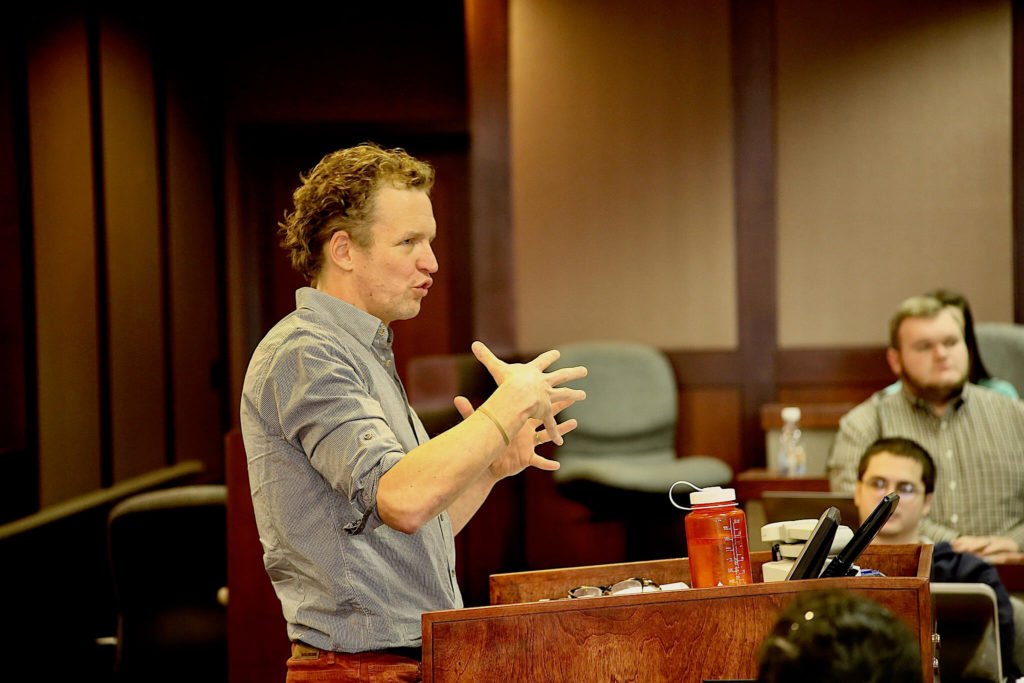Finding the best U.S. Supreme Court appointees should be less about technical legal excellence and more about practical wisdom.
That’s the conclusion of University of Tennessee College of Law Professor Benjamin Barton whose nearly 20 years of legal scholarship has focused on analysis of the legal profession and its participants.
Barton, author of “Rebooting Justice,” “Glass Half Full: The Decline and Rebirth of the Legal Profession,” and “The Lawyer-Judge Bias in the American Legal System,” has completed multiple studies on the composition of the U.S. Supreme Court. His expertise has made him a valuable source for recent articles in the Boston Globe, the Washington Post, and The Guardian addressing Brett Kavanaugh’s Supreme Court nomination. Barton is also working on a book titled “Diversity on the Court: A Study of Supreme Court Justice Backgrounds and Why They Matter.”
Barton’s research led him to examine the pre-court experience for every Supreme Court justice from John Jay to Elena Kagan. He found that the current justices have spent more pre-appointment time in legal academia, appellate judging, and living in Washington, D.C. than any previous Supreme Court. Most of the justices attended elite universities for undergraduate and law school, and spent less time in private practice, trial judging, and as elected politicians.
Barton’s conclusion: “If you look at the people who are on the Supreme Court now, it suggests that if you were not the valedictorian of your high school class, you’re not qualified.”
Recent nominees – including Merrick Garland who was not confirmed after being selected by President Barack Obama in 2016, President Donald Trump’s 2017 appointee Justice Neil Gorsuch, and now Brett Kavanaugh – “are all the same person,” Barton said.
“Kavanaugh fits the mold perfectly,” he said. “He is completely out of central casting. He’s another hyper-elite hoop jumper.”
For the portion of the Supreme Court justice’s job that requires technical legal excellence, those “elite, tenured, and cloistered” credentials make sense, Barton said.
“But there is another part of their job that isn’t technically legal at all, and that’s the part that people most care about,” Barton said. “Do corporations have first amendment rights or do gay people have the constitutional right to get married? These are not technical legal questions, and it’s a mistake to approach them as such.”
Barton holds out hope that by drawing attention to the problem and increasing awareness of the situation, the composition of the courts will change.
“The president should also consider appointing people that don’t look exactly like the people that are already there,” Barton said.
